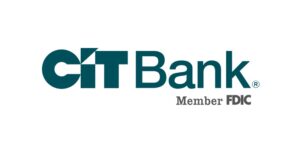
Having a savings account is always necessary as it’s used to build wealth and avoid debt. If you want to effectively save money, you’ll find the balance between what you need for spending and how much you can put away.
However, some people have multiple savings accounts. Is it necessary for building wealth? What are the pros and cons of having multiple savings accounts? In this post we’ll go over the pros and cons for having multiple savings accounts.
Your Saving Habits
In order to even start saving, you have to have room to start saving. If you live paycheck to paycheck, it’ll be hard to put away some extra money each paycheck for you to save. However, even if you do live paycheck to paycheck, sometimes it may not be that you aren’t earning enough.
You may be using too much on personal expenses like eating out or going to events. Track your spending or get an electronic app to help you do so. If you realize that you’re spending too much on personal expenses you can cut down on that and start saving your money.
The best to to start saving is by creating an automated money transfer. It may be hard for you to part ways with your money, but if you get it automatically done, it can be easier. Of course you have to be comfortable with it. If you’re not, manually transferring your money may be the best choice for you.
Lastly, if you withdraw money from an already existing savings account often, you may need to open another savings account that is harder to access.
You can open an account like a CD (certified deposit) where they charge you a fee for withdrawing from your account, or a money market account where they limit the amount of times you can access and withdraw from your account per month.
Reasons to Have Multiple Savings Accounts
- You have multiple savings goals: If you have multiple goals that you’re trying to save for, opening multiple accounts may be your best choice. It’s easier to keep track of the amount of you have for each goal and it’s easy to set up automated money transfers to each of those accounts.
- You need to separate your savings: You may have multiple savings for different occasions, such as an Emergency Fund, long-term, and short-term savings accounts. Each of these accounts may have a different difficulties of accessing and for good reason. Long-term savings may be the bulk of your savings where it’ll grow and gain interest while the emergency funds may be inaccessible unless in certain situations.
- You have high balances: Some banks may only allow insurance up to a certain limit. FDIC covers each depositor up to $250,000. If you have more than that, it may not be insured thus making it necessary to open up multiple accounts to keep your balance under the maximum limit.
- You’re concerned your bank will fail: The FDIC is in place to insure you if your bank ever does go under, but it may take a lot of time before you’re reimbursed. If you’re worried about this, spreading out your savings may be the best choice for you. If one bank does go under, you’ll have other saving accounts in place at other banks.
- You can receive multiple perks: If you want to take advantage of all the different perks and benefits different banks have, you can open multiple accounts among all the different banks you’re interested in.
- You’re indecisive: If one bank has some perks you want and another has other perks that you want, it may be hard to make a decision. Opening an account in each is a good choice to try out each bank and see which one suits you best.
- Multiple withdrawals: Money Market Accounts typically limit your withdrawals to 6 per month, but if you have 3 money market accounts, you’re up to 18 withdrawals a month. If you do this, make sure that the money you’re withdrawing is used towards other investments, otherwise you’ll just be depleting your money.
Reasons to Not Have Multiple Savings Accounts
- Reaching the minimum balance: Most banks require a minimum balance with some ranging in the hundreds and other in the thousands in order to qualify for their max interest rates. If this is the case continue to save your money in a single account until you can reach the minimum for all the banks you’re aiming for.
- Bank relationships: Creating a relationship with your bank may prove to be difficult if you have multiple account. Some won’t give you the maximum interest rate even if you qualify for it if you have multiple bank accounts. It may also be difficult to maintain multiple automated payments between many different bank accounts.
- You could lose interest rates: Spreading out your money may decrease the amount of money you can make through interest rates as some accounts pay higher interest rates the more money you have.
- It can be confusing: Having multiple accounts be be confusing when you have to decide what accounts your $600 in savings will go into. Having to distribute it can prove to be difficult, especially if you receive an unexpected bonus whereas if you had a single savings accounts, you could just dump it all in there.
- Complicated Automated Transfers: Transferring your funds between multiple bank accounts can be difficult. It’s hard to keep track and some banks may not communicate with each other effectively.
- You can lose track of money: Unless you’re really good at tracking and recording your money, transferring a bunch of your funds to different accounts can be difficult when you have to decide what amount goes where. If you incorrectly place some money in a different account you could lose track of your money and not be able to find it again.
- You Could Pay Higher Fees. Some financial institutions charge fees for their accounts, especially on accounts with a low balance. Make sure you’re not overpaying by dividing your saving.
 |
 |
 |
 |
Bottom Line
Unless you’re good at tracking and recording and at least have the funds for each account, having multiple savings accounts may not be for you. Hopefully after reading this article you can decide whether or not having multiple accounts is meant for you.
It can come with some great benefits, but requires more time and attention paid to each account. If you find posts like these interesting, be sure to check out our other posts on HMB!Be sure to check out our other posts on Best Credit Card Bonuses, Best Bank Rates, and Best Bank Bonuses!




Leave a Reply